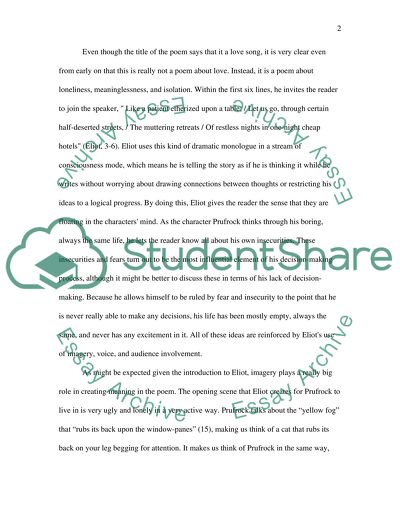Cite this document
(“The Love Song of J. Alfred Prufrock Essay Example | Topics and Well Written Essays - 1000 words - 1”, n.d.)
Retrieved from https://studentshare.org/literature/1498015-the-love-song-of-j-alfred-prufrock
Retrieved from https://studentshare.org/literature/1498015-the-love-song-of-j-alfred-prufrock
(The Love Song of J. Alfred Prufrock Essay Example | Topics and Well Written Essays - 1000 Words - 1)
https://studentshare.org/literature/1498015-the-love-song-of-j-alfred-prufrock.
https://studentshare.org/literature/1498015-the-love-song-of-j-alfred-prufrock.
“The Love Song of J. Alfred Prufrock Essay Example | Topics and Well Written Essays - 1000 Words - 1”, n.d. https://studentshare.org/literature/1498015-the-love-song-of-j-alfred-prufrock.


